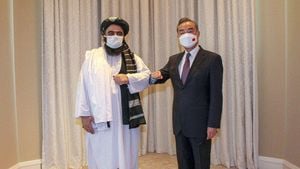Guam is making strides with fresh funding initiatives aimed at enhancing digital equity and addressing pressing social issues like homelessness.
Recently, Guam was awarded $2.5 million through the National Telecommunications and Information Administration (NTIA), part of the $369 million national initiative to advance digital skills and inclusion. This funding builds upon last year's $2.1 million grant, which assisted community institutions such as the Mayors' Offices and the Guam Memorial Hospital. Acting Governor Josh Tenorio expressed pride over this development, stating, "This grant award is a testimony to the hard work and dedication of our teams at OIPD, DRT, and DISID. It is significant investment for the future of Guam, providing resources to improve accessibility and support our most vulnerable populations."
The key projects funded by this grant include enhancing the accessibility of websites for the Guam Department of Revenue and Taxation and the Department of Motor Vehicles, as well as deploying mobile units to facilitate access to Real IDs and driver’s licenses, especially for remote areas. A notable element of this initiative is the establishment of an Accessible Digital Hub aimed at serving as a central point for digital training and resources, particularly for those with disabilities.
These initiatives reflect Guam's commitment to creating inclusive digital environments as outlined in its Digital Equity Plan approved by the NTIA this year. Through these efforts, the government aims to empower underserved communities and enrich their digital experience, reinforcing the importance of equitable technological access on the island.
On another front, Attorney General Douglas Moylan has launched discussions about addressing Guam's homelessness crisis, advocating for stronger actions and proposing the establishment of temporary homeless staging areas utilizing military-grade tents. His approach, he argues, would provide evening shelter and daytime services for the homeless community, asserting the need for comprehensive solutions to improve public safety and economic stability.
Moylan stated, "With dropping tourism numbers and the devalued Asia exchange rate, panhandling and homeless encampments threaten Guam's economic tourism engine and our quality of life." This has provoked differing responses from the island's leadership, with positive steps being mentioned such as recent government acquisition of facilities intended for overnight shelter.
Officials from the Office of Homelessness and Poverty Prevention, including Rob San Agustin, explained existing strategies for homeless service provision, stating, "More than just staging sites, we are implementing facilities to assist the homeless night and day. The goal is to create operations to help individuals reintegrate successfully back to society." San Agustin emphasized the plans to utilize the newly acquired warehouse for this purpose, enhancing the operational capacity for addressing homelessness issues.
Moylan's recommendations have stirred debate among local leaders, with San Agustin countering his observations by mentioning the foundational efforts already underway. The tension reflects varying opinions on the necessary paths for truly addressing homelessness, especially as comparisons to successful models from places like Hawaii are brought to light.
Historically, Guam has faced significant challenges when dealing with homelessness, raising questions about the effectiveness of proposed measures. Moylan cited previous failures but argued for new methods to tackle the pervasive issue, insisting on collaborative efforts: "The attack on the homeless encampments must be multifaceted, and the governor is the key to solving this and our other socioeconomic problems."
Meanwhile, the community remains vigilant about how the digital equity initiative and proposed homeless solutions will evolve, hoping these government actions can genuinely uplift the lives of all residents on the island. Similar sentiments about pressing community needs continue to shape discussions surrounding the wellbeing of Guam’s most vulnerable populations.
Overall, the Guam government is entangled within complex issues surrounding digital accessibility, homelessness, and effective responses driven by both innovative funding initiatives and the urgency for real-life assistance.
Both acting Governor Tenorio's and Attorney General Moylan's leadership will be instrumental going forward as they seek to nurture lasting change and provide actionable solutions across the board.



